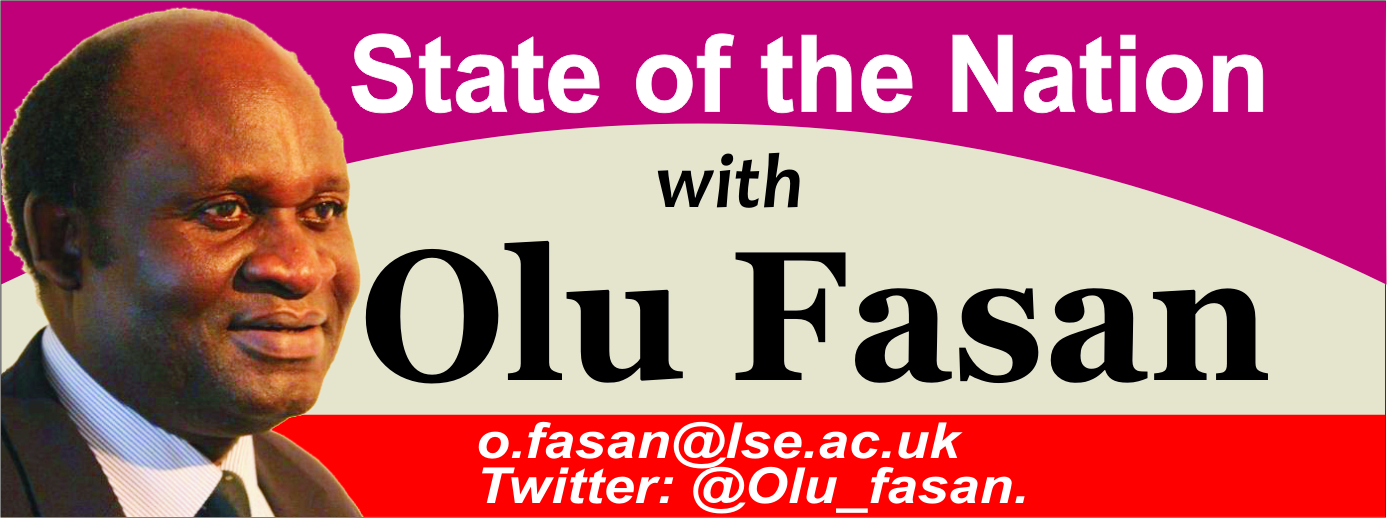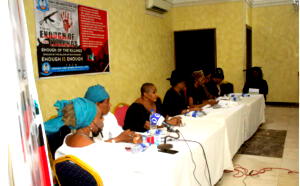By Olu Fasan THE Ebonyi State governor, Dave Umahi, recently defected from the Peoples Democratic Party, PDP, to the All Progressives Cong...
By Olu Fasan
THE Ebonyi State governor, Dave Umahi, recently defected from the Peoples Democratic Party, PDP, to the All Progressives Congress, APC, amid speculations that more South-East PDP governors may also dump their party for the APC.
President Muhammadu Buhari described Umahi as a “man of principle” for defecting to his party, saying he acted “in accordance with his conscience and convictions rather than opportunistic motives”.
But that’s utter falsity. Umahi’s defection and others that will follow have absolutely nothing to do with principled or conviction politics. They are opportunistic political manoeuvrings for the 2023 general elections.
Ahead of that year’s elections, the fickleness and fluidity of party affiliations in Nigeria would shamefully be exposed again as politicians shop around for the party that offers them the best chance of actualising their ambitions.
Indeed, Umahi gave the game away when he blamed his defection on the PDP’s seeming unwillingness to zone the Presidency to the South East in 2023. “The PDP should be bold to declare its stand on zoning of the Presidency to the South East or tell us why we are not capable of holding such a position,” he said.
The governor denies nursing a presidential ambition, but many, including Governor Nyesom Wike of Rivers State, believe he decamped to the APC to seek a presidential ticket in 2023.
Well, even if that’s true, Umahi has only done what Nigerian politicians always do. Take Atiku Abubakar, arguably the most serial party-switcher in Nigeria. From PDP, under which he was vice president for eight years, he defected to the then Action Congress in 2006, then returned to the PDP in 2007, only to defect to the APC in 2014, then back in PDP in 2017! Elsewhere, party-switching is mainly driven by ideological differences. If, for instance, a party changed from having liberal values to showing strong conservative leanings, a politician may defect because his values are no longer aligned with those of the party.
But political parties in Nigeria are utterly bereft of ideology, so defections are not driven by ideological differences but self-interested calculations. For instance, in 2015, as soon as President Goodluck Jonathan conceded the election to General Buhari, PDP members began to decamp to the APC in droves.
The spate of defections was so incessant that the then national chairman of APC, John Oyegun, issued a statement urging PDP members to “stay in their party”, adding that the gale of defections “is not good for political development”.
ALSO READ: Oil prices rise as market awaits output deal
That was, of course, disingenuous. Since then, the APC has used patronage and threats to lure several prominent PDP members into the party. The APC’s aim is to weaken the PDP ahead of the 2023 elections as it did ahead of the 2015 presidential race when Atiku, five PDP governors, three former PDP national chairmen and countless legislators left the party to help form the APC. A cobbled-together coalition of self-interested political factions, the APC succeeded in destabilising the PDP and ending its 16-year rule.
But what all this shows is that Nigeria is a one-party state: the party is the political class. In theory, there are two main parties, APC and PDP, but, in practice, there is absolutely no difference, no ideological divide, between them. For all intents and purposes, the two parties are mere political vehicles that politicians use interchangeably to gain power.
If you cannot achieve your ambitions in one party, try the other, as Governor Godwin Obaseki of Edo State did when he won a second term under the PDP after his party, APC, denied him the ticket. It was as if both parties were interchangeable. Of course, they are!
That, of course, is what happens when you have personality-based, rather than value-based, politics. When a party stands for something and people join it because of what it stands for, they won’t dump it simply because they don’t get what they personally want.
Of course, you could argue, in the case of Obaseki, for instance, that defections are inevitable when there’s lack of internal party democracy. But that’s part of the wider problems with Nigeria’s party system.
Truth is, political parties in Nigeria are not only intellectually shallow and bereft of ideology, but they are also personalised.
They are much like the medieval era “parties”, which were made up of cliques and factions, grouped around particular noblemen, the equivalents of today’s godfathers. But such personalised party system gave way, since the 19th century, to modern mass parties, which are based on impersonal rules and party system.
The nature of a genuine party system, that is, a system of government by political parties, is that it is based on having strong, value-driven parties that offer alternative visions, and thus give citizens real choice. It is such contestability that enhances democratic development.
Denis and Ian Derbyshire said in their book, Political Systems of the World: “The opportunity of voting for a complete change of policy, and even philosophy, is a vital element in a democratic political system”, adding that “without it, genuine choice is limited”.
Sadly, that genuine choice does not exist in Nigeria. That’s because there is absolutely no difference between the two main parties.
What exists is a choice between personalities, but a personality-based politics undermines the party system and harms democratic development.
The Constitution recognises the importance of a robust party system; hence it accords primacy to political parties in the electoral system, and frowns on frivolous defections. And the Supreme Court has tried to safeguard the party system. But widespread political opportunism makes the constitutional and judicial constraints ineffectual.
Think of it: Umahi left PDP, under which he is a two-term governor, because the party fails to zone the presidency to the South East in 2023. But has APC promised South East the presidency? Of course, it won’t! So, he is undermining the party system on false hopes. South-East PDP politicians should fight for the presidency in the party and stop the wild goose chase in APC!
The post Defections: How political opportunism kills the party system in Nigeria appeared first on Vanguard News.


No comments